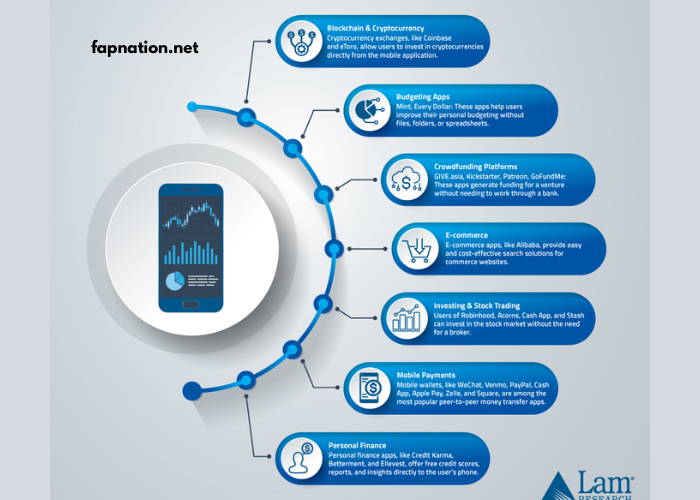As the business world continues to evolve at an unprecedented pace, the need for innovation has never been more pressing. With each passing year, new technologies, strategies, and ideas emerge, transforming industries and reshaping the way companies operate. Looking ahead to 2025, businesses must stay ahead of the curve to thrive in an increasingly competitive global market. In this article, we’ll explore the key business innovations and trends that are set to shape 2025 and beyond.
The Rise of Artificial Intelligence (AI) and Automation
AI and Automation: Revolutionizing Industries
Artificial Intelligence (AI) has already started to revolutionize the business landscape, and by 2025, it will likely play an even more integral role. AI technologies, such as machine learning, natural language processing, and computer vision, are expected to automate a vast array of tasks that traditionally required human input. From customer service chatbots to data analysis tools, AI is making businesses more efficient and cost-effective.
One of the most notable developments is AI-powered automation, which allows businesses to automate repetitive tasks, improve workflow efficiency, and reduce errors. Companies in industries such as manufacturing, finance, healthcare, and logistics are expected to see significant benefits from adopting AI technologies. In particular, AI’s ability to analyze large datasets and identify patterns will enhance decision-making processes and provide businesses with a competitive edge.
AI in Personalized Customer Experiences
In 2025, businesses will continue to embrace AI to deliver highly personalized customer experiences. By analyzing customer data, AI systems can predict customer preferences and behaviors, enabling businesses to tailor their offerings and marketing strategies accordingly. Personalized recommendations, dynamic pricing models, and targeted content will become standard in industries like e-commerce, entertainment, and retail.
The Continued Growth of Remote and Hybrid Work Models
Remote Work: A Lasting Trend
The COVID-19 pandemic accelerated the shift toward remote work, and by 2025, this trend is expected to remain a defining feature of the modern workplace. Remote and hybrid work models have proven to be effective for many organizations, allowing employees to work from home while maintaining productivity. As businesses continue to adopt these flexible work models, they will need to invest in technologies that facilitate remote collaboration, communication, and project management.
Cloud-based tools, video conferencing platforms, and digital collaboration software will be critical to ensuring that teams can work seamlessly, regardless of their physical location. In addition, businesses will place greater emphasis on cybersecurity to protect sensitive information and data as employees work remotely.
Hybrid Work: Bridging the Gap Between In-Person and Remote Collaboration
Hybrid work, which blends both in-office and remote work, will become increasingly popular by 2025. Businesses will need to adapt their physical office spaces to accommodate hybrid work environments, focusing on creating collaborative spaces that foster creativity and innovation. These spaces will be designed to support both in-person and virtual meetings, allowing employees to seamlessly transition between different work modes.
Sustainability and Green Business Practices
The Push for Environmental Responsibility
As climate change continues to be a global concern, businesses are under increasing pressure to adopt sustainable and environmentally friendly practices. By 2025, sustainability will be at the forefront of business innovation, with companies adopting green technologies, reducing waste, and implementing sustainable supply chains. Consumers are also becoming more environmentally conscious, demanding eco-friendly products and services.
Businesses that prioritize sustainability will not only help protect the environment but will also enjoy the benefits of enhanced brand reputation, customer loyalty, and compliance with evolving regulations. Green innovations such as renewable energy solutions, electric vehicles, and sustainable packaging will play a significant role in shaping the business landscape in 2025.
Circular Economy: Rethinking Product Lifecycles
A key aspect of sustainability is the transition to a circular economy. By 2025, businesses will increasingly focus on designing products that are durable, repairable, and recyclable, rather than relying on a traditional linear “take-make-dispose” model. This approach aims to minimize waste and maximize the lifespan of products by reusing materials, reducing consumption, and promoting recycling.
Companies that adopt circular economy principles will not only help reduce their environmental impact but will also benefit from cost savings and improved resource efficiency. The shift toward a circular economy will require collaboration across industries and sectors, including manufacturers, retailers, and consumers, to create a more sustainable future.
Digital Transformation and Blockchain
The Role of Digital Transformation in Business Innovation
Digital transformation has become a crucial aspect of business strategy in recent years, and by 2025, it will continue to be a driving force behind business innovation. The integration of advanced technologies such as AI, cloud computing, big data analytics, and the Internet of Things (IoT) will help businesses streamline operations, improve customer engagement, and enhance decision-making processes.
Companies will increasingly adopt digital platforms to create new business models and revenue streams. E-commerce, digital marketing, and online services will continue to expand, providing businesses with new ways to connect with customers and deliver value. The digitalization of traditional industries, such as manufacturing, healthcare, and education, will also enable businesses to stay competitive in an increasingly tech-driven world.
Blockchain Technology: Enhancing Transparency and Security
Blockchain technology, known for its ability to provide secure, transparent, and decentralized transactions, is expected to become more mainstream by 2025. In addition to its use in cryptocurrencies, blockchain is being explored for applications in supply chain management, data security, and contract verification.
By 2025, blockchain could revolutionize industries such as finance, healthcare, and logistics by offering greater transparency, reducing fraud, and streamlining processes. Blockchain’s ability to securely store and share data across multiple parties will increase trust and efficiency, especially in industries that rely on complex, multi-step processes.
The Expansion of the Internet of Things (IoT)
IoT: Connecting the World Around Us
The Internet of Things (IoT) refers to the network of interconnected devices that communicate and share data with each other. By 2025, the IoT ecosystem will continue to expand, with businesses leveraging IoT technologies to improve operations, enhance customer experiences, and create innovative products and services.
In sectors such as manufacturing, agriculture, and healthcare, IoT devices will enable businesses to gather real-time data that can be used to optimize performance, reduce costs, and improve decision-making. Smart sensors, connected machines, and wearables will become more prevalent, allowing businesses to monitor and manage their operations more effectively.
IoT and Smart Cities
The integration of IoT into urban infrastructure will also shape business innovation in 2025. Smart cities, which use IoT technologies to improve urban living, will create new opportunities for businesses in areas such as transportation, energy management, and waste disposal. For example, businesses will be able to leverage IoT data to improve supply chain logistics, optimize energy usage, and reduce operational costs.
The Shift Toward Customer-Centric Business Models
Emphasizing Customer Experience
As competition intensifies, businesses will increasingly focus on delivering exceptional customer experiences. By 2025, customer-centric business models will be essential for success, with companies prioritizing customer satisfaction, personalization, and engagement.
AI, big data analytics, and CRM systems will enable businesses to gather insights into customer preferences, behaviors, and needs, allowing them to provide tailored products, services, and experiences. The rise of omnichannel strategies will ensure that customers can interact with brands seamlessly across multiple touchpoints, from online stores to physical locations.
The Growth of Subscription-Based Services
Subscription-based business models, where customers pay for ongoing access to products or services, are gaining popularity across industries. By 2025, this trend will likely expand as businesses look for new ways to generate recurring revenue and build long-term customer relationships.
From subscription boxes to software-as-a-service (SaaS) platforms, companies are increasingly offering flexible, value-driven solutions that cater to customers’ evolving needs. Subscription models allow businesses to retain customers for longer periods, increase customer lifetime value, and foster brand loyalty.
Conclusion
The business world in 2025 will be marked by innovation, disruption, and transformation. Key trends such as the rise of AI and automation, remote and hybrid work, sustainability, digital transformation, blockchain, and IoT will reshape industries and create new opportunities for businesses to grow and thrive.
As these trends continue to evolve, companies that embrace innovation, prioritize customer-centric models, and invest in technology will be best positioned to succeed in the competitive business landscape of the future. To stay ahead of the curve, businesses must remain agile, adaptable, and committed to continuous improvement as they navigate the challenges and opportunities of tomorrow.



